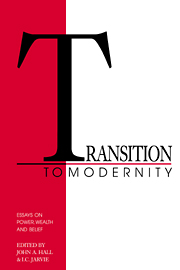Introduction
Published online by Cambridge University Press: 02 February 2010
Summary
Power, belief, wealth: the questions about human society are clustered around these notions. They concern the manner in which a society controls its members; the manner in which it forms their thought, and in which their thinking sustains it; and the manner in which it keeps alive and uses its resources.
These are the opening sentences of Ernest Gellner's most technical and least known book: Saints of the Atlas (1969), his anthropological fieldwork report on the Berbers of the High Atlas. The tripartite division of the questions about society into those concerning power, belief and wealth correspond to the fields covered in PPE, the degree subject which Gellner read at Oxford. Yet his approach to all three notions is encapsulated in this short epigraph. It is to be noted that he puts the stress on society, not on cultures or individuals; that he writes of ideas formed by society rather than vice versa; and that he implies that resources belong to a society. He thus shows himself favourable to a sociological as opposed to a cultural or psychological approach to social phenomena; to an anti-idealist view in philosophy; and he envisions resources being deployed by societies rather than markets, classes or individuals.
Gellner's immense range is usually taken as simple diversity, forays into separate realms united only by his interest in them. A more demanding yet more fruitful way to comprehend his range is to see it as a single line of thought that unites problems and ideas around which the academy has put artificial disciplinary boundaries.
- Type
- Chapter
- Information
- Transition to ModernityEssays on Power, Wealth and Belief, pp. 1 - 8Publisher: Cambridge University PressPrint publication year: 1992
- 12
- Cited by

